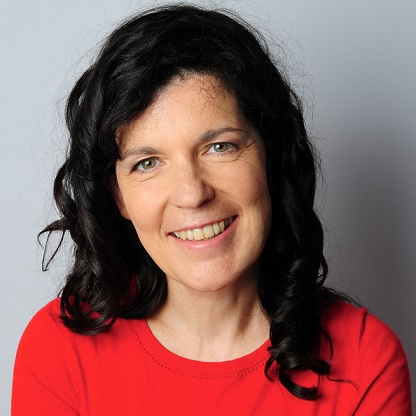Keynote Speakers
Anthony Steed
Head of the Virtual Environments and Computer Graphics group in the Department of Computer Science at University College London

Technologies to Build Metaverses
Abstract: Today, a wide range of extended reality (XR) devices enables us to collaborate in new ways. Social virtual reality (SVR) already allows millions of users to socialize, play games, and work together. Meanwhile, augmented reality (AR) devices hold the promise of wearable, all-day solutions that support both immersive and augmented experiences. A common vision for the future of collaboration involves users accessing shared virtual environments from anywhere, engaging with large groups, and creating personalized spaces to share with others. These systems are often referred to as "metaverses."
In this talk, I will review some of the challenges in realising aspects of these metaverse systems. I will talk about the progress of collaborative systems and their interaction with the game engine systems that we’ve become used to. I will talk about how usability and accessibility are related to content generation and content customisation. I will talk about the role generative AI systems have in supporting users, both producers of virtual environments and also those who want to adapt existing systems for their use.
Bio: Anthony Steed is Head of the Virtual Environments and Computer Graphics group in the Department of Computer Science at University College London. He has 30 years of experience in developing effective immersive experiences. While his early work focussed on the engineering of displays and software, more recently it has focussed on user engagement in collaborative and telepresence scenarios. He received the IEEE VGTC’s 2016 Virtual Reality Technical Achievement Award. Recently, he was a Visiting Researcher at Microsoft Research, Redmond, and an Erskine Fellow at the Human Interface Technology Laboratory in Christchurch, New Zealand.
Elisabeth André
Chair for Human-Centered Artificial Intelligence at Augsburg University

AI-Enhanced Multimodal Communication:
How to Build Rapport between Humans and Agents in xVR?
Abstract: In my talk, I will explore analytical and generative AI approaches designed to enhance both human-human and human-computer communication across diverse xVR-settings. The focus will be on developing believable communicative behaviors for avatars, including facial expressions and body postures, derived from neural models of human behavior. To complement the visual modality, I will present an evolutionary mechanism for customizing voices for virtual agents, leveraging a human-in-the-loop paradigm to intuitively explore latent speaker embedding spaces. Intrapersonal and interpersonal synchrony between modalities, such as the timing and coordination of verbal and non-verbal behaviors within and among interlocutors, will be discussed as a critical aspect of achieving natural and engaging interactions. Drawing on research projects conducted in my lab featuring social coaching and classroom meetings with virtual agents and avatars, health care assistants, and signing avatars, I will demonstrate how analytic and generative AI can foster authentic expression, build rapport between participants and overcome communication barriers. The talk will also address ethical considerations including strategies to mitigate the risk of reinforcing stereotypes when creating virtual agents.
Bio: Elisabeth André is a full professor of Computer Science and Founding Chair of Human-Centered Artificial Intelligence (AI) at Augsburg University in Germany. She has a long track record in multimodal user interfaces, virtual agents, and social robots, following an interdisciplinary approach at the intersection of Artificial Intelligence and Human-Machine Interaction. Her work has won many awards, including the Gottfried Wilhelm Leibniz Prize 2021 of the German Research Foundation (DFG), which, with 2.5 million euros, is the highest endowed German research award. In 2017, she was elected to the CHI Academy, an honorary group of leaders in the field of Human-Computer Interaction. To honor her achievements in bringing Artificial Intelligence techniques to Human-Computer Interaction, she was awarded a EurAI fellowship (European Coordinating Committee for Artificial Intelligence) in 2013. In 2019, she was named one of the 10 most influential figures in the history of AI in Germany by the National Society for Informatics (GI). She is a member of the German Academy of Sciences (Leopoldina) and the National Academy of Science and Engineering (acatech).
